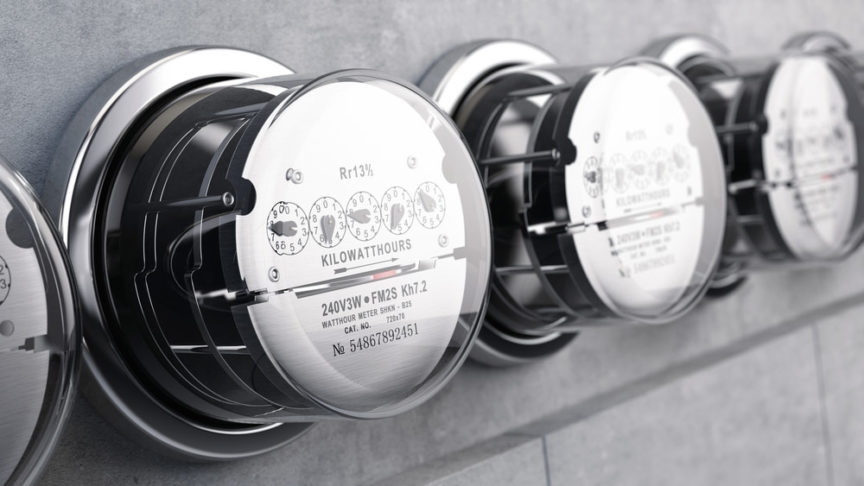As temperatures start to rise and the days grow longer, it’s the perfect time to take a step back and carefully consider how you can keep your electricity bill at a minimum this summer. From the right AC settings, utilising off-peak electricity to making the most of the glorious natural daylight, there is a wide range of simple steps you can take to reduce your energy consumption at this time of year.
How Much Is The Average Electricity Bill?
Before you jump into taking the right steps to reduce your electricity bill, it’s a good idea to look into how much electricity you’re consuming compared to other households in Australia. The amount you spend on electricity during the summertime will depend on a variety of factors, including the size of your household, your lifestyle and the climate of your local area.
According to Canstar Blue research, the average annual electricity bill for homes in Queensland is $1,240, and in New South Wales, the average annual electricity bill is $1,421.
| State | Average Annual Electricity Bill |
|---|---|
| Western Australia | $916 |
| Victoria | $1,012 |
| Victoria | $1,012 |
| Queensland | $1,240 |
| ACT | $1,284 |
| New South Wales | $1,421 |
| South Australia | $1,444 |
| Tasmania | $1,708 |
| Northern Territory | $2,224 |
Source: Canstar Blue electricity customer satisfaction survey, January 2021.
The research included households of all sizes.
How To Reduce Your Electricity Bill
As more and more Australians are becoming more aware of our impact on the environment, many of us are considering how we can make small changes to reduce our energy consumption and cut down our annual energy bills. Thankfully, there are a few simple steps you can take to reduce your energy consumption this summer, including:
Carry Out Preventative Pool Maintenance
Keeping your pool properly maintained might seem like a tedious task, but it’s essential to not only save money on your energy bills but also to prevent costly repair tasks in the future.
To keep electricity costs down, clean your filter regularly and run it during off-peak hours when electricity demand is lower. Off-peak times are usually between 8 pm and 10 am, but you can check this with your utility provider.
It’s also a good idea to carry out periodic backwashing to keep your drain systems clear and reduce the temperature of the pool when it isn’t being used.
Avoid Setting Your A/C Too Low
According to Ian Swain of the Energy Efficiency Council, every time you lower the temperature of your air conditioning system by one degree, this can add up to 10% to your electricity bill. The optimal temperature of your air conditioning system to remain cool while keeping costs at a minimum is 25°C, so if you find that you’re wandering around the house in a sweatshirt and sweatpants during the peak of summer, it’s time to turn that thermostat up!
Opt For Solar Energy Alternatives
While installing solar panels in your home might seem like an unnecessary expense, it can actually reduce your energy bills in the long run and reduce the carbon footprint of your home. A solar heating system could be a great addition to your pool heating system as it will reduce the amount of time required for your heater to operate.
Solar panels can also be used to power other electrical appliances in your home, such as your lighting system. Us Aussies are lucky to enjoy plenty of sunlight during the summer, so installing solar panels in your home could be a worthwhile investment.
Block Out Sunlight
Keeping the sun out of your home is one of the most effective ways of keeping the temperature down in summer. Keep the sun out of any south-facing rooms by drawing your curtains and blinds to prevent the short-wave radiation from the sun heating up your home.
Awnings and shutters are also worth installing in your home over summer, as they will prevent sunlight from entering your windows from the outside and will allow you to control the amount of light in your home during winter.
Switch To LED Lighting
Compared to incandescent bulbs, LED lights not only use less energy but also have a longer lifespan. In fact, LED bulbs have been proven to cut energy expenses by as much as 90% and can provide up to 50,000 hours of light, compared to the 4,000 hours of light provided by incandescent lighting.
LED lights are also more durable and able to withstand fluctuating temperatures than incandescent lights, so they’re a great option if you’re looking for a long-term lighting solution.
Close Your Windows And Doors During Peak Hours
While it might seem logical to open up your windows and doors to ventilate your home while temperatures soar, this can actually heat up the furniture and walls of your home. It’s a better idea to ventilate your home while the air outside is cooler, rather than during the hottest hours of the day.
If you live in an area with low humidity, placing damp towels on your skin or spraying yourself with cold water is a good alternative. As the water evaporates and turns into a vapour, it cools the air around it.
If you live in a two-storey home, opening up the upstairs and downstairs areas is important as cold air will enter via the ground floor and warm air will escape via the upper floors.
Contact Our Electrical Experts
At Oceanside services, we provide customers all over southeast Queensland with professional electrical, roofing, gas fitting and plumbing services they can trust. If you’d like to learn more about our services in Northern NSW, Brisbane and the Gold Coast, don’t hesitate to give our experts a call on 07 5520 7100 today or fill in our online contact form.



 5 Star Service
5 Star Service 






